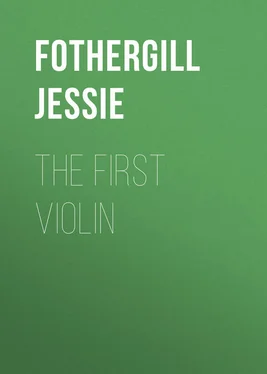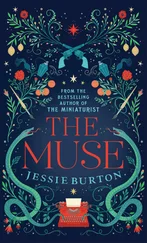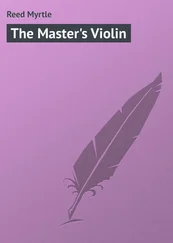Jessie Fothergill - The First Violin
Здесь есть возможность читать онлайн «Jessie Fothergill - The First Violin» — ознакомительный отрывок электронной книги совершенно бесплатно, а после прочтения отрывка купить полную версию. В некоторых случаях можно слушать аудио, скачать через торрент в формате fb2 и присутствует краткое содержание. Жанр: foreign_antique, foreign_prose, foreign_sf, на английском языке. Описание произведения, (предисловие) а так же отзывы посетителей доступны на портале библиотеки ЛибКат.
- Название:The First Violin
- Автор:
- Жанр:
- Год:неизвестен
- ISBN:нет данных
- Рейтинг книги:4 / 5. Голосов: 1
-
Избранное:Добавить в избранное
- Отзывы:
-
Ваша оценка:
- 80
- 1
- 2
- 3
- 4
- 5
The First Violin: краткое содержание, описание и аннотация
Предлагаем к чтению аннотацию, описание, краткое содержание или предисловие (зависит от того, что написал сам автор книги «The First Violin»). Если вы не нашли необходимую информацию о книге — напишите в комментариях, мы постараемся отыскать её.
The First Violin — читать онлайн ознакомительный отрывок
Ниже представлен текст книги, разбитый по страницам. Система сохранения места последней прочитанной страницы, позволяет с удобством читать онлайн бесплатно книгу «The First Violin», без необходимости каждый раз заново искать на чём Вы остановились. Поставьте закладку, и сможете в любой момент перейти на страницу, на которой закончили чтение.
Интервал:
Закладка:
“ Hauptmann. ”
“Thank you.” Hauptmann Eugen Courvoisier – a noble and a gallant title, and one which became him. “How much is a thaler?” was my next question.
“It is as much as three shillings in your money.”
“Oh, thank you,” said I, and did a little sum in my own mind. At that rate then, I owed Herr Courvoisier the sum of ten shillings. How glad I was to find it came within my means.
As I took off my things, I wondered when Herr Courvoisier would “make out his accounts.” I trusted soon.
CHAPTER VIII
“Probe zum verlorenen Paradiese.”
Miss Hallam fulfilled her promise with regard to my singing lessons. She had a conversation with Fräulein Sartorius, to whom, unpopular as she was, I noticed people constantly and almost instinctively went when in need of precise information or a slight dose of common sense and clear-headedness.
Miss Hallam inquired who was the best master.
“For singing, the Herr Direktor,” replied Anna, very promptly. “And then he directs the best of the musical vereins – the clubs – societies, whatever you name them. At least he might try Miss Wedderburn’s voice.”
“Who is he?”
“The head of anything belonging to music in the town – königlicher musik-direktor. He conducts all the great concerts, and though he does not sing himself, yet he is one of the best teachers in the province. Lots of people come and stay here on purpose to learn from him.”
“And what are these vereins?”
“Every season there are six great concerts given, and a seventh for the benefit of the direktor. The orchestra and chorus together are called a verein – musik-verein. The chorus is chiefly composed of ladies and gentlemen – amateurs, you know — Dilettanten . The Herr Direktor is very particular about voices. You pay so much for admission, and receive a card for the season. Then you have all the good teaching – the Proben .”
“What is a Probe ?” I demanded, hastily, remembering that Courvoisier had used the word.
“What you call a rehearsal.”
Ah! then he was musical. At last I had found it out. Perhaps he was one of the amateurs who sung at these concerts, and if so, I might see him again, and if so – But Anna went on:
“It is a very good thing for any one, particularly with such a teacher as von Francius.”
“You must join,” said Miss Hallam to me.
“There is a probe to-night to Rubinstein’s ‘Paradise Lost,’” said Anna. “I shall go, not to sing, but to listen. I can take Miss Wedderburn, if you like, and introduce her to Herr von Francius, whom I know.”
“Very nice! very much obliged to you. Certainly,” said Miss Hallam.
The probe was fixed for seven, and shortly after that time we set off for the Tonhalle, or concert-hall, in which it was held.
“We shall be much too early,” said she. “But the people are shamefully late. Most of them only come to klatsch , and flirt, or try to flirt, with the Herr Direktor.”
This threw upon my mind a new light as to the Herr Direktor, and I walked by her side much impressed. She told me that if I accepted I might even sing in the concert itself, as there had only been four proben so far, and there were still several before the haupt-probe.
“What is the haupt-probe?” I inquired.
“General rehearsal – when Herr von Francius is most unmerciful to his stupid pupils. I always attend that. I like to hear him make sport of them, and then the instrumentalists laugh at them. Von Francius never flatters.”
Inspired with nightmare-like ideas as to this terrible haupt-probe, I found myself, with Anna, turning into a low-fronted building inscribed “Städtische Tonhalle,” the concert-hall of the good town of Elberthal.
“This way,” said she. “It is in the rittersaal. We don’t go to the large saal till the haupt-probe.”
I followed her into a long, rather shabby-looking room, at one end of which was a low orchestra, about which were dotted the desks of the absent instrumentalists, and some stiff-looking Celli and Contrabassi kept watch from a wall. On the orchestra was already assembled a goodly number of young men and women, all in lively conversation, loud laughter, and apparently high good-humor with themselves and everything in the world.
A young man with a fuzz of hair standing off about a sad and depressed-looking countenance was stealing “in and out and round about,” and distributing sheets of score to the company. In the conductor’s place was a tall man in gray clothes, who leaned negligently against the rail, and held a conversation with a pretty young lady who seemed much pleased with his attention. It did not strike me at first that this was the terrible direktor of whom I had been hearing. He was young, had a slender, graceful figure, and an exceedingly handsome, though (I thought at first) an unpleasing face. There was something in his attitude and manner which at first I did not quite like. Anna walked up the room, and pausing before the estrade, said:
“Herr Direktor!”
He turned: his eyes fell upon her face, and left it instantly to look at mine. Gathering himself together into a more ceremonious attitude, he descended from his estrade, and stood beside us, a little to one side, looking at us with a leisurely calmness which made me feel, I knew not why, uncomfortable. Meanwhile, Anna took up her parable.
“May I introduce the young lady? Miss Wedderburn, Herr Musik-Direktor von Francius. Miss Wedderburn wishes to join the verein, if you think her voice will pass. Perhaps you will allow her to sing to-night?”
“Certainly, mein Fräulein ,” said he to me, not to Anna. He had a long, rather Jewish-looking face, black hair, eyes, and mustache. The features were thin, fine, and pointed. The thing which most struck me then, at any rate, was a certain expression which, conquering all others, dominated them – at once a hardness and a hardihood which impressed me disagreeably then, though I afterward learned, in knowing the man, to know much more truly the real meaning of that unflinching gaze and iron look.
“Your voice is what, mein Fräulein ?” he asked.
“Soprano.”
“Sopran? We will see. The soprani sit over there, if you will have the goodness.”
He pointed to the left of the orchestra, and called out to the melancholy-looking young man, “Herr Schonfeld, a chair for the young lady!”
Herr von Francius then ascended the orchestra himself, went to the piano, and, after a few directions, gave us the signal to begin. Till that day – I confess it with shame – I had never heard of the “Verlorenes Paradies.” It came upon me like a revelation. I sung my best, substituting do , re , mi , etc., for the German words. Once or twice, as Herr von Francius’s forefinger beat time, I thought I saw his head turn a little in our direction, but I scarcely heeded it. When the first chorus was over, he turned to me:
“You have not sung in a chorus before?”
“No.”
“So! I should like to hear you sing something sola .” He pushed toward me a pile of music, and while the others stood looking on and whispering among themselves, he went on, “Those are all sopran songs. Select one, if you please, and try it.”
Not at all aware that the incident was considered unprecedented, and was creating a sensation, I turned over the music, seeking something I knew, but could find nothing. All in German, and all strange. Suddenly I came upon one entitled “Blute nur, liebes Herz,” the sopran solo which I had heard as I sat with Courvoisier in the cathedral. It seemed almost like an old friend. I opened it, and found it had also English words. That decided me.
Читать дальшеИнтервал:
Закладка:
Похожие книги на «The First Violin»
Представляем Вашему вниманию похожие книги на «The First Violin» списком для выбора. Мы отобрали схожую по названию и смыслу литературу в надежде предоставить читателям больше вариантов отыскать новые, интересные, ещё непрочитанные произведения.
Обсуждение, отзывы о книге «The First Violin» и просто собственные мнения читателей. Оставьте ваши комментарии, напишите, что Вы думаете о произведении, его смысле или главных героях. Укажите что конкретно понравилось, а что нет, и почему Вы так считаете.












